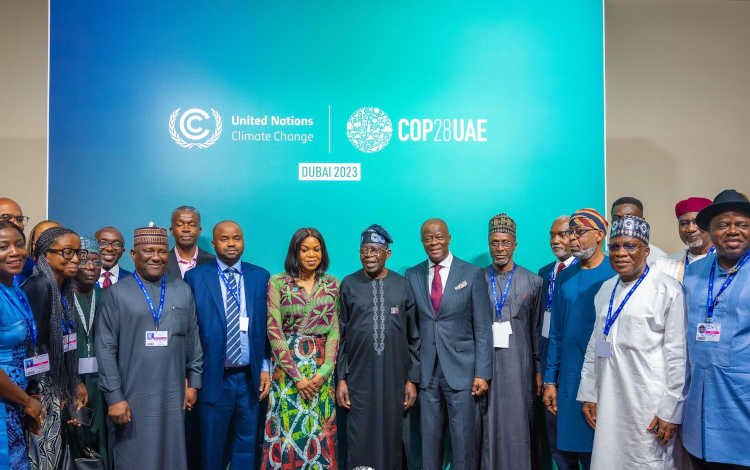Nigeria appears unwilling to genuinely reduce the high cost of governance, even at a time when the country is facing its worst economic crisis.
Development Diaries reports that the President Bola Tinubu administration has confirmed that the Nigerian government’s delegation to the ongoing United Nations Summit on Climate Change (COP28) is made up of 422 persons.
The concern here is why the country traveled to the United Arab Emirates (UAE), the venue of the event, with such a large number of government delegates when the country should be managing its lean resources.
Understandably, citizens would question the necessity of such expenditures when their economic well-being is at stake.
With an inflation rate of 27.33 percent and a plan in the works to borrow nearly all of the money needed to finance its $27.5 trillion budget for 2024, we expected fiscal responsibility from the federal government.
This is a situation whereby resources are meant to be managed and the need arises for governments to prioritise spending on essential services such as health care, education and social welfare.
International trips often involve substantial expenditures on travel, accommodation, and related expenses. According to data by Statisense, estacode per night for a Nigerian minister is $900, special advisor – $800, director general of ministries departments and agencies (MDAs) – $900, and House of Representatives member – $900.
By reducing spending on such trips, the government can reallocate funds to bolster domestic programmes that directly impact citizens.
If the government is being honest with its citizens, some delegates who attended could have made use of advancements in technology as an alternative means of engaging in foreign conferences without the need for extensive travel.
Furthermore, it is imperative to state that Nigeria has maintained a low gross domestic product (GDP) of U.S.$477.37 billion, revealing that its economy ranks lower compared to many countries that sent fewer delegates to the conference, according to data from Statisense.
Nigerian leaders should learn from Malawi and Zambia. President Lazarus Chakwera of Malawi decided in November 2023 to postpone all of his and government officials’ trips abroad until March 2024. He announced a series of tough measures to heal the country’s ailing economy.
Similarly, President Hakainde Hichilema of Zambia forfeited his salaries for eight months and also refused to buy new cars for the presidency as a demonstration of his service to the people he swore to serve diligently.
When will President Tinubu and his team demonstrate practical examples of cutting unnecessary spending?
Development Diaries calls on the Nigerian government to stop justifying waste and instead start channeling resources into reviving the country’s ailing economy.
Photo source: Presidency Nigeria







